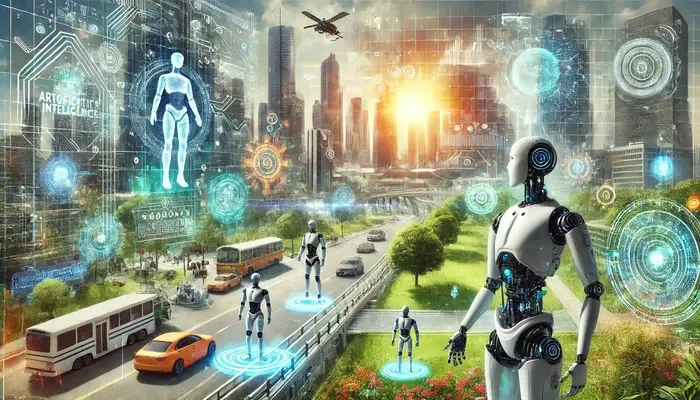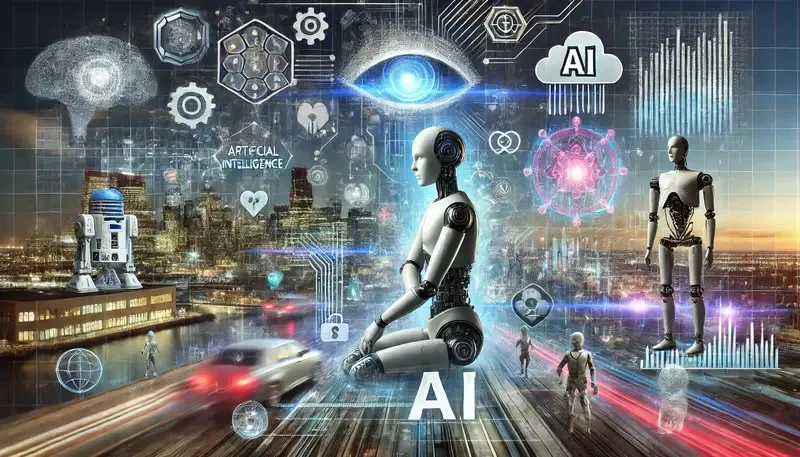
The Future of Artificial Intelligence: Prospects and Challenges
Artificial Intelligence (AI) has rapidly evolved from a futuristic concept to an integral part of modern technology. Its applications span across numerous sectors, revolutionizing industries and improving daily life. As AI continues to develop, it brings both promising opportunities and significant challenges. This article explores the future of AI, highlighting its potential innovations, applications, risks, and development scenarios.
New Opportunities and Innovations in AI
AI is on the brink of unlocking unprecedented opportunities. Advances in machine learning, deep learning, and neural networks are paving the way for more sophisticated AI systems capable of performing complex tasks with minimal human intervention. Innovations such as quantum computing promise to exponentially increase the processing power available to AI, enabling it to solve problems previously deemed intractable.
One significant area of innovation is in natural language processing (NLP). Improved NLP models are making AI more intuitive and human-like in its interactions, which enhances user experience in applications like virtual assistants, customer service bots, and language translation services. Additionally, AI-driven automation is transforming industries by optimizing processes, reducing errors, and increasing efficiency.
Applications of AI in Various Fields
The applications of AI are vast and diverse, impacting various fields profoundly. In healthcare, AI algorithms are revolutionizing diagnostics, predicting disease outbreaks, and personalizing treatment plans. AI-powered medical imaging tools assist doctors in detecting diseases at early stages with greater accuracy.
In finance, AI enhances fraud detection, algorithmic trading, and risk management. Financial institutions leverage AI to analyze large datasets, identify patterns, and make more informed decisions. Similarly, the retail sector benefits from AI through personalized marketing, inventory management, and customer service improvements.
In transportation, AI is the backbone of autonomous vehicles, providing safer and more efficient travel options. AI systems are also used in smart city initiatives to manage traffic flow, reduce energy consumption, and improve public safety. Moreover, AI in education offers personalized learning experiences, helping students achieve better outcomes based on their individual needs.

Challenges and Risks Associated with the Development of AI
Despite its numerous benefits, AI development poses several challenges and risks. Ethical concerns are at the forefront, particularly regarding privacy, bias, and accountability. AI systems often require vast amounts of data, raising questions about data privacy and security. There is also the risk of inherent biases in AI algorithms, which can perpetuate and amplify existing inequalities.
Another significant challenge is the potential for job displacement due to automation. While AI can create new job opportunities, it can also render certain roles obsolete, necessitating significant workforce reskilling and adaptation. Additionally, the development of AI poses security risks, including the potential misuse of AI for malicious purposes such as deepfakes, autonomous weapons, and cyber-attacks.
The Future of AI: Opportunities and Development Scenarios
Looking ahead, the future of AI holds both exciting opportunities and complex challenges. One development scenario involves the integration of AI into everyday objects, creating an interconnected ecosystem known as the Internet of Things (IoT). This could lead to smarter homes, cities, and workplaces, enhancing efficiency and quality of life.
Another scenario envisions AI playing a pivotal role in addressing global challenges such as climate change, healthcare accessibility, and food security. AI-driven solutions could optimize resource management, improve disease prevention, and enhance agricultural productivity, contributing to sustainable development goals.
However, realizing these opportunities requires careful consideration of ethical implications, robust regulatory frameworks, and a commitment to responsible AI development. Collaboration between governments, industry, and academia will be crucial in establishing standards and best practices that ensure AI benefits society as a whole.